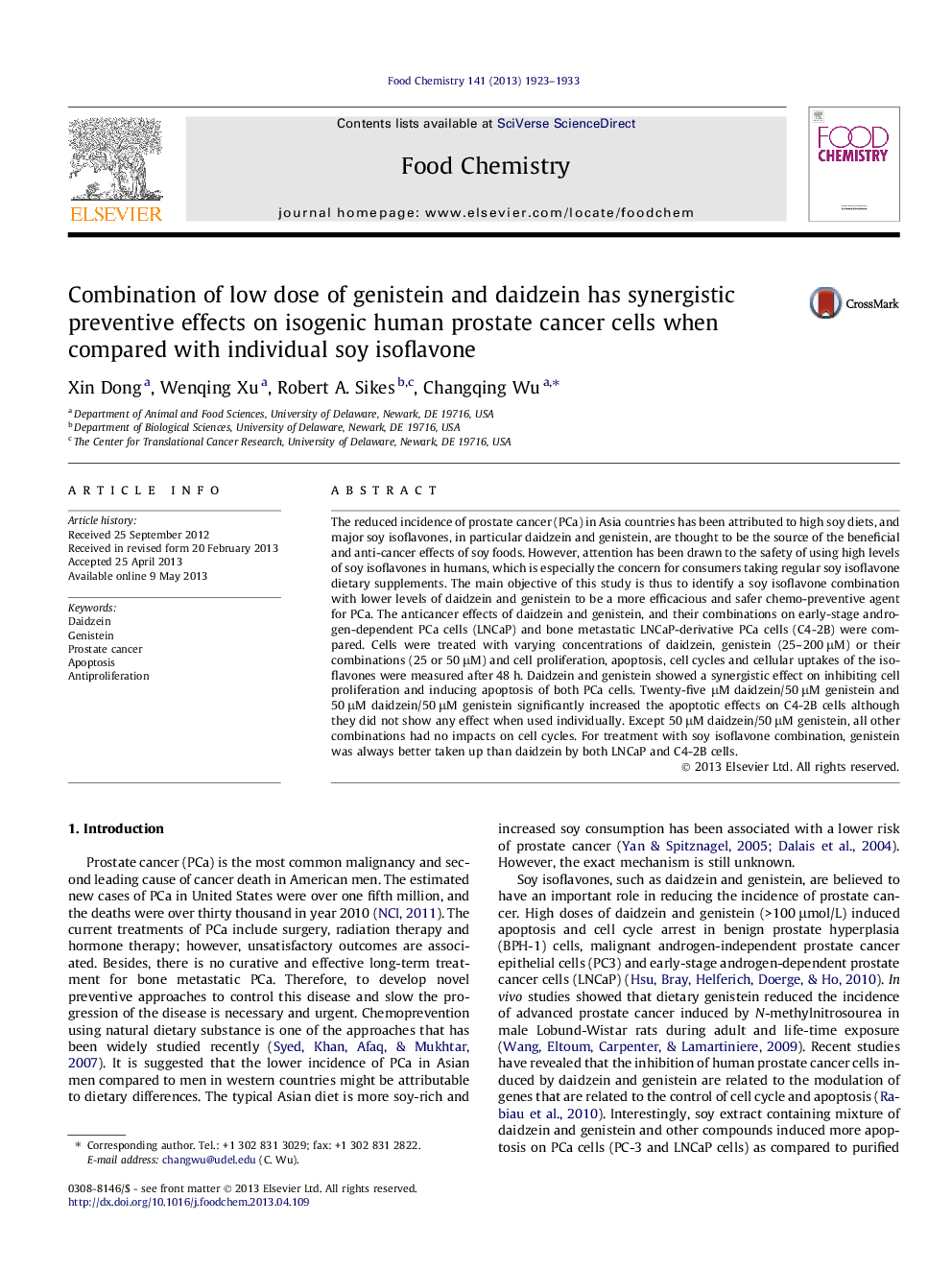| Article ID | Journal | Published Year | Pages | File Type |
|---|---|---|---|---|
| 10540179 | Food Chemistry | 2013 | 11 Pages |
Abstract
The reduced incidence of prostate cancer (PCa) in Asia countries has been attributed to high soy diets, and major soy isoflavones, in particular daidzein and genistein, are thought to be the source of the beneficial and anti-cancer effects of soy foods. However, attention has been drawn to the safety of using high levels of soy isoflavones in humans, which is especially the concern for consumers taking regular soy isoflavone dietary supplements. The main objective of this study is thus to identify a soy isoflavone combination with lower levels of daidzein and genistein to be a more efficacious and safer chemo-preventive agent for PCa. The anticancer effects of daidzein and genistein, and their combinations on early-stage androgen-dependent PCa cells (LNCaP) and bone metastatic LNCaP-derivative PCa cells (C4-2B) were compared. Cells were treated with varying concentrations of daidzein, genistein (25-200 μM) or their combinations (25 or 50 μM) and cell proliferation, apoptosis, cell cycles and cellular uptakes of the isoflavones were measured after 48 h. Daidzein and genistein showed a synergistic effect on inhibiting cell proliferation and inducing apoptosis of both PCa cells. Twenty-five μM daidzein/50 μM genistein and 50 μM daidzein/50 μM genistein significantly increased the apoptotic effects on C4-2B cells although they did not show any effect when used individually. Except 50 μM daidzein/50 μM genistein, all other combinations had no impacts on cell cycles. For treatment with soy isoflavone combination, genistein was always better taken up than daidzein by both LNCaP and C4-2B cells.
Related Topics
Physical Sciences and Engineering
Chemistry
Analytical Chemistry
Authors
Xin Dong, Wenqing Xu, Robert A. Sikes, Changqing Wu,
